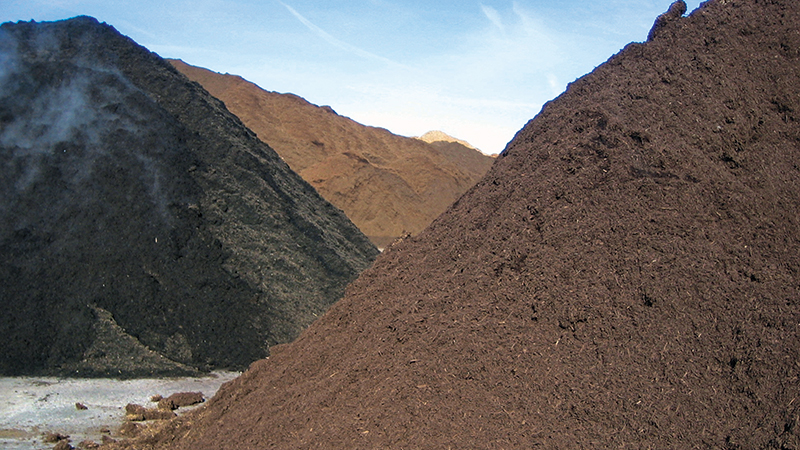
Mulch can be an essential part of any landscaping project. Landscape Management spoke with Matt Malone, vice president of operations for Northeast Ohio-based landscape supply company, Kurtz Bros., about the benefits of mulching and what contractors may overlook when it comes to the mulching process.
Landscape Management: Why is mulching so important?

Matt Malone: To me, it’s the paint on a landscape project. It kind of finishes the job in my mind, regardless of the other benefits. It’s the finishing touch that makes the project complete and look good, regardless of what type of mulch you use.
In addition to that, it conserves moisture. It generally creates a better environment for any plants in that bed. It’s also going to hamper any weed growth. You put mulch down, and hopefully, you don’t have to do as much weeding.
LM: What ways can contractors communicate what you just said to clients?
MM: Showing finished pictures of a landscape project is a good idea. People’s time and energy are essential, too. So, if there are ways to relate to the customer, “hey, do you want to be weeding every three weeks or to be watering more than you need to?” That is a good way to communicate the importance of mulching to clients.
LM: What are some things that people might overlook when mulching?
MM: With some of the labor challenges everybody’s having, I think it’s easy to overlook how much time their crews will spend in trucks.
You can mitigate that by ordering the correct amount from the get-go, so you don’t have to go back and get more. You can have a guy in a truck for an hour going back and forth to get more mulch. I think that that’s an expense that is sometimes easy to overlook. So, make sure that you order the right amount and if you can’t have the material delivered there, try to minimize how much time you have guys in the trucks.
LM: What materials does Kurtz use in its mulch? And what kinds of mulch do you offer?
MM: We use a wide range of wood fiber, recycled pallet wood, fresh green land cleared wood and wood debris from fall and spring cleanups. We’ll grind up any clean wood fiber and make a product out of it.
We offer both natural and colored mulches. Our natural mulches are un-colored. There’s 100-percent bark where it goes through a debarking process at a mill, and we get that finished product with 100-percent bark.
And then we have just a natural wood product that is a blend of yard trimmings, spring and fall cleanups, wood debris-type material and land cleared wood.
In our colored mulches, we offer a double grind and a triple grind. They also have those natural products in them, and some of them have recycled pallets in them. Essentially, they’re dyed to either black, brown or red, and then they’re ground to a double size or a finer triple ground mulch.
LM: What can contractors do to mulch effectively and efficiently?
MM: There are blower trucks, which are trucks that have hoses, and you can spray or blow on the mulch. Those are gaining popularity, especially since they are a lot less labor-intensive. They’re an expensive capital investment, but those certainly can help contractors be more efficient.

